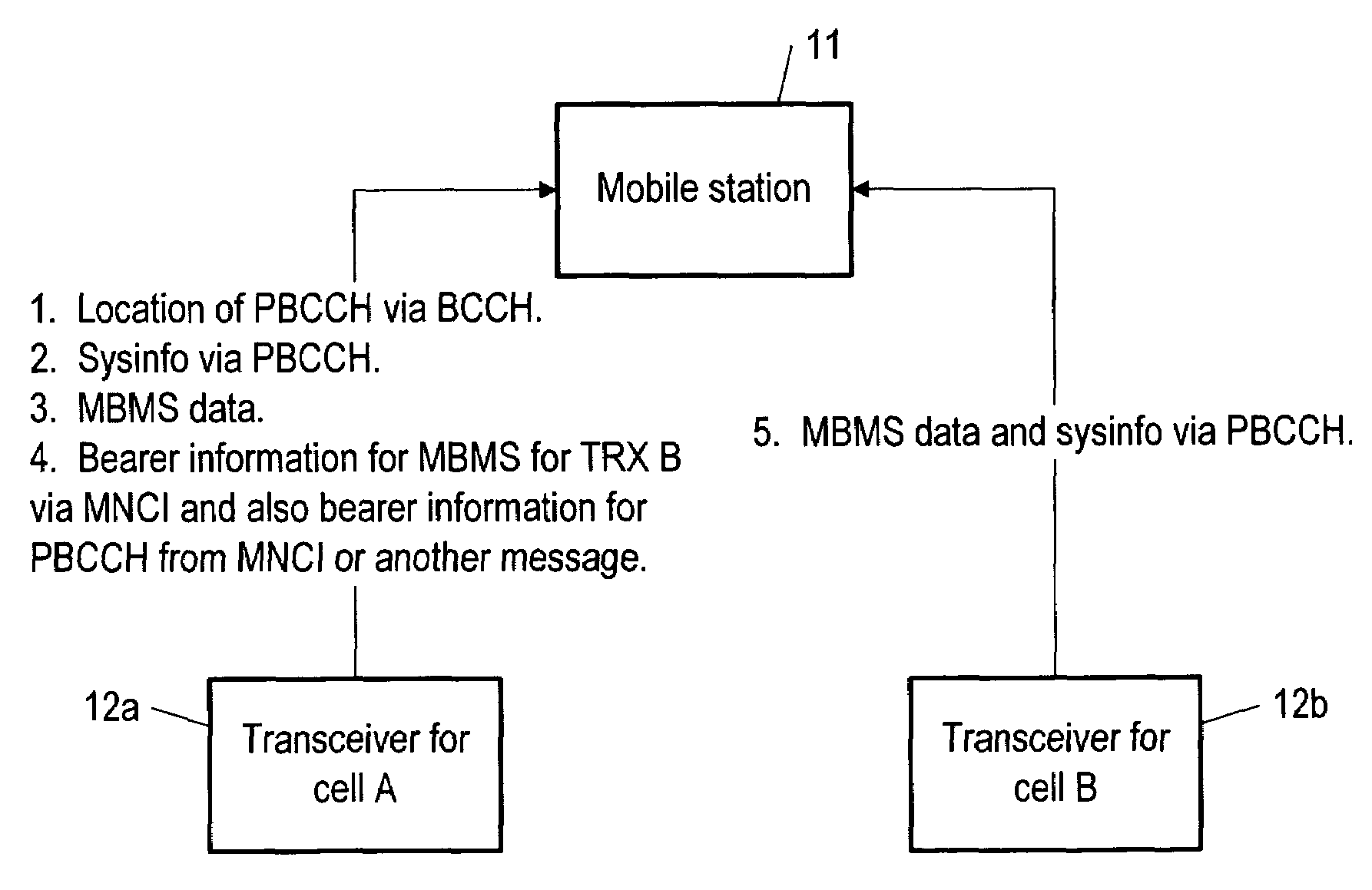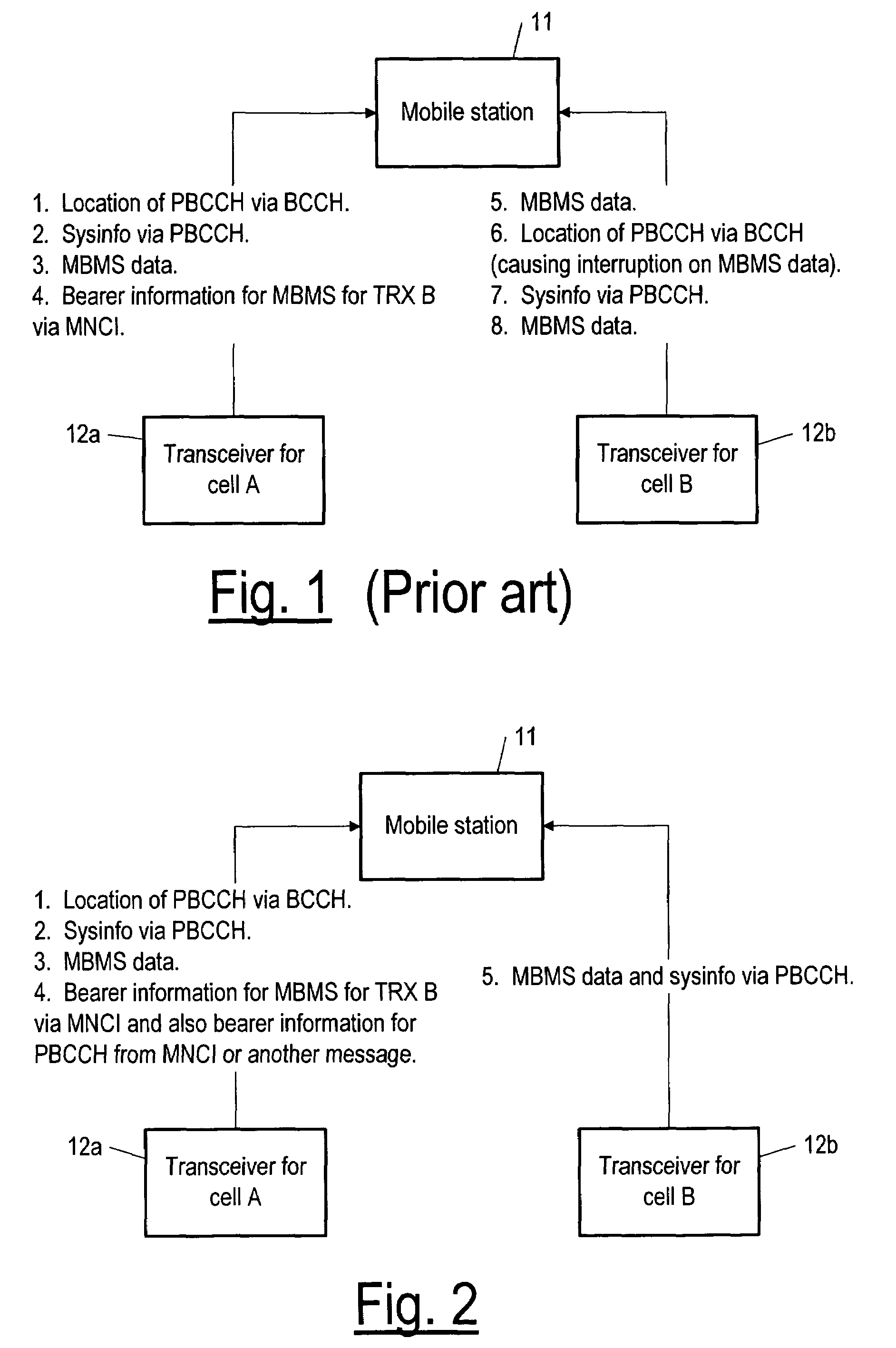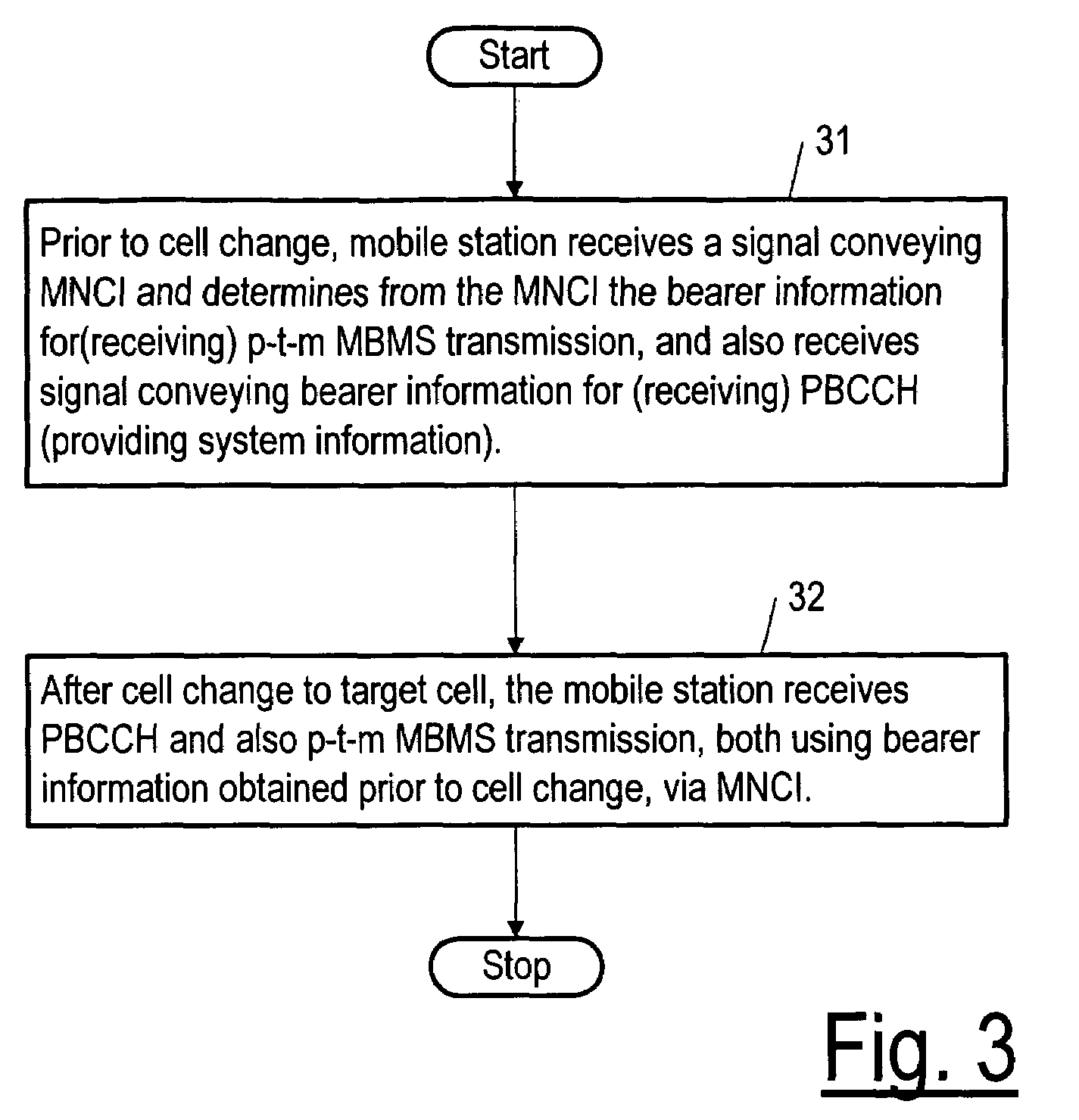MBMS cell reselection to packet channel
a cell reselection and packet channel technology, applied in multiplex communication, broadcast service distribution, wireless commuication services, etc., can solve the problems of reducing the mbms transmission capacity in the network, unable to meet the needs of mbms data reception, so as to reduce any delay/gap and/or interruption in mbms reception, improve cell res
- Summary
- Abstract
- Description
- Claims
- Application Information
AI Technical Summary
Benefits of technology
Problems solved by technology
Method used
Image
Examples
Embodiment Construction
[0035]Referring now to FIG. 1 and FIG. 2: FIG. 2 shows a mobile station 11 undergoing a cell change process during a (point-to-multipoint) MBMS transmission (conveying e.g. real-time audio and / or video) according to the invention, in contrast with operation of a mobile station in the same situation but operating according to the prior art as shown in FIG. 1. In both cases the mobile station begins receiving an MBMS transmission in the cell served by transceiver (TRX) A 12a, and also receives system information from PBCCH in the cell, and the reception of the two is coordinated so that a delay in receiving one causes a delay in receiving the other.
[0036]Now in the prior art as shown in FIG. 1, prior to a cell change to the cell served by TRX B 12b, the mobile station 11 obtains from MBMS neighboring cell information (MNCI) the bearer information for receiving MBMS in the cell served by TRX B, but has no way of obtaining the bearer information for receiving PBCCH, which it must receiv...
PUM
 Login to View More
Login to View More Abstract
Description
Claims
Application Information
 Login to View More
Login to View More - R&D
- Intellectual Property
- Life Sciences
- Materials
- Tech Scout
- Unparalleled Data Quality
- Higher Quality Content
- 60% Fewer Hallucinations
Browse by: Latest US Patents, China's latest patents, Technical Efficacy Thesaurus, Application Domain, Technology Topic, Popular Technical Reports.
© 2025 PatSnap. All rights reserved.Legal|Privacy policy|Modern Slavery Act Transparency Statement|Sitemap|About US| Contact US: help@patsnap.com



